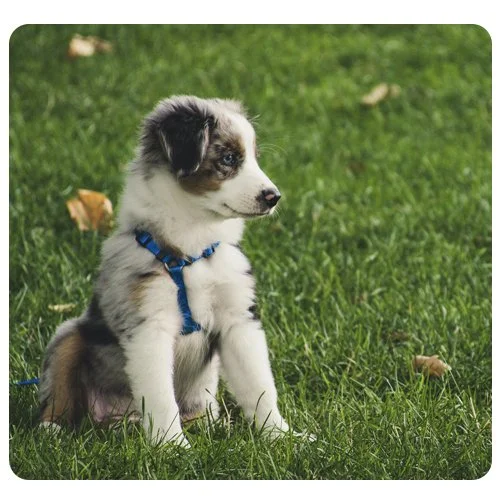Puppy & Kitten Care

Essential Puppy and Kitten Care: Your Complete Guide
Welcoming a new puppy or kitten into your family marks the beginning of an incredible journey filled with unconditional love, playful moments, and lifelong memories. These first few months are crucial for establishing the foundation of your pet’s health and happiness for years to come.
At Nimbus Pet Hospital, we understand that caring for a young pet can feel overwhelming, especially for first-time pet owners. From vaccination schedules to nutrition questions, behavioral training to health concerns, there’s a lot to navigate. That’s why we’ve created this comprehensive guide to help you provide the best possible care for your new furry family member.
The decisions you make during your pet’s first year will significantly impact their long-term health, behavior, and quality of life. With proper veterinary care, nutrition, socialization, and preventive measures, you can help ensure your puppy or kitten grows into a healthy, well-adjusted adult pet.
Comprehensive Puppy and Kitten Care by Nimbus Pet Hospital
First Veterinary Visit: Setting the Foundation
Your puppy or kitten’s first veterinary appointment should be scheduled within the first week of bringing them home, ideally around 6-8 weeks of age. This initial visit serves multiple critical purposes beyond a simple check-up.
During this comprehensive examination, our veterinarians perform a thorough physical assessment to evaluate your pet’s overall health status. We check for any congenital abnormalities, assess their heart and lung function, examine their eyes and ears, and evaluate their body condition. This baseline examination helps us identify any immediate concerns and establish a health profile for your pet.
Vaccination Protocol
The first visit includes the initial round of core vaccinations. For puppies, this typically includes protection against distemper, hepatitis, parvovirus, parainfluenza, and adenovirus. Kittens receive vaccinations for panleukopenia, calicivirus, rhinotracheitis, and chlamydia. We’ll also discuss the rabies vaccination schedule, which is required by law and crucial for your pet’s safety.


Parasite Prevention and Testing
Young animals are particularly susceptible to parasites. We’ll perform fecal examinations to check for intestinal parasites like roundworms, hookworms, and coccidia. Additionally, we’ll discuss and implement appropriate flea, tick, and heartworm prevention protocols tailored to your pet’s lifestyle and our local environment.
Ongoing Health Monitoring
Puppies and kittens require multiple veterinary visits during their first four months of life. These frequent check-ups allow us to monitor their growth and development closely, ensuring they’re meeting important developmental milestones.
Growth Assessment
Regular weight checks and body condition evaluations help us ensure your pet is growing at an appropriate rate. Rapid growth periods require careful monitoring to prevent developmental orthopedic diseases in large breed puppies and to ensure proper nutrition for all young pets.
Behavioral Development
These visits also provide opportunities to discuss behavioral development and training. Early socialization is crucial for preventing behavioral problems later in life. We’ll provide guidance on appropriate socialization techniques, house training, and basic obedience training.
Nutritional Guidance
Proper nutrition during the first year of life is essential for healthy growth and development. Young animals have different nutritional requirements than adults, requiring higher protein and calorie content to support their rapid growth.
We’ll help you select an appropriate high-quality puppy or kitten food and establish proper feeding schedules. Overfeeding can lead to obesity and developmental problems, while underfeeding can result in poor growth and immune system development. Our team will provide specific feeding guidelines based on your pet’s breed, size, and growth rate.
Why Choose Nimbus Pet Hospital for Puppy and Kitten Care
State-of-the-Art Facilities and Equipment
Nimbus Pet Hospital features modern diagnostic equipment and treatment facilities specifically designed to provide comprehensive care for pets of all ages. Our digital radiography system allows for quick, accurate imaging when needed, while our in-house laboratory provides rapid diagnostic results for immediate treatment decisions.
Our surgical suite is equipped with the latest anesthetic monitoring equipment and warming systems, ensuring the safest possible procedures for spaying, neutering, and any other surgical needs your growing pet may require.
Experienced and Compassionate Team
Dr. Saum Hadi and our veterinary team bring extensive experience in puppy and kitten care. Having graduated from Oregon State University College of Veterinary Medicine, Dr. Hadi understands the unique needs of growing pets and the concerns of their families.
Our team takes the time to explain each aspect of your pet’s care, ensuring you feel confident and informed about the decisions affecting your pet’s health. We believe in building strong relationships with both pets and their families, creating a comfortable environment for veterinary visits.
Individualized Care Plans
Every puppy and kitten is unique, with different needs based on their breed, size, lifestyle, and family situation. We don’t believe in one-size-fits-all approaches to veterinary care. Instead, we develop customized care plans that take into account your pet’s specific requirements and your family’s preferences and budget.
Whether you’re looking for a holistic approach to pet care or prefer traditional veterinary medicine, we work with you to create a plan that aligns with your beliefs and goals for your pet’s health and wellbeing.
Convenient Location and Scheduling
Located in the Nimbus Center at the intersection of Scholls Ferry Road and Nimbus Avenue in Tigard, our hospital is easily accessible for families throughout the area. We maintain flexible scheduling to accommodate urgent care needs and routine appointments, understanding that young pets sometimes require immediate attention.
Things We Can Discover or Determine Treatment for with Puppy and Kitten Care
Early Disease Detection
Many serious health conditions can be detected and addressed during routine puppy and kitten visits. Early detection often leads to more successful treatment outcomes and can prevent minor issues from becoming major health problems.
Congenital Abnormalities
Some pets are born with congenital conditions that may not be immediately apparent. Heart murmurs, luxating patella, hip dysplasia, and eye abnormalities are examples of conditions we can detect during early examinations. Early identification allows for appropriate monitoring and treatment planning.
Infectious Disease Screening
Young pets are vulnerable to various infectious diseases. We perform testing for conditions like feline leukemia virus and feline immunodeficiency virus in kittens, which can significantly impact their health and life expectancy if left undetected.
Parasitic Infections
Intestinal parasites are extremely common in young pets and can cause serious health problems if left untreated. Regular fecal examinations allow us to detect and treat parasites like roundworms, hookworms, whipworms, and coccidia before they cause significant illness.
External parasites like fleas and ticks not only cause discomfort but can transmit serious diseases. Our preventive protocols help protect your pet from these parasites and the diseases they carry.
Developmental Issues
Orthopedic Development
Large breed puppies are particularly susceptible to developmental orthopedic diseases. Regular monitoring allows us to provide nutritional and exercise guidance to minimize the risk of conditions like hip dysplasia and osteochondritis dissecans.
Dental Development
Monitoring dental development helps us identify potential problems with tooth eruption or jaw development early. This is particularly important in small breed dogs and brachycephalic breeds that may be prone to dental crowding or malocclusion.
Nutritional Deficiencies or Excesses
Poor nutrition during the growth phase can have lasting effects on your pet’s health. Through regular monitoring and body condition assessments, we can identify and correct nutritional imbalances before they cause permanent damage.
Behavioral Concerns
Early intervention for behavioral issues is much more effective than trying to correct established problem behaviors. During puppy and kitten visits, we can identify potential behavioral concerns and provide guidance for proper socialization and training.
Common FAQs
When should I bring my new puppy or kitten for their first visit?
Schedule your pet’s first appointment within one week of bringing them home, ideally when they’re 6-8 weeks old. This early visit establishes baseline health information and begins essential preventive care protocols.
How many vaccinations will my pet need?
Puppies and kittens typically require a series of 3-4 vaccination visits spaced 3-4 weeks apart, starting at 6-8 weeks of age. This schedule ensures proper immune system development and protection against serious diseases.
When should I spay or neuter my pet?
The timing varies depending on your pet’s breed, size, and individual development. Generally, we recommend spaying or neutering between 4-6 months of age, but we’ll discuss the optimal timing for your specific pet during your visits.
What signs should prompt an immediate veterinary visit?
Contact us immediately if your puppy or kitten shows signs of lethargy, vomiting, diarrhea, difficulty breathing, loss of appetite lasting more than 12 hours, or any other concerning symptoms. Young pets can become seriously ill very quickly.
How often should I feed my puppy or kitten?
Young pets typically need to eat more frequently than adults. Puppies usually require 3-4 meals per day until they’re about 6 months old, while kittens may need 4-5 small meals daily. We’ll provide specific feeding recommendations based on your pet’s age, breed, and size.
When can my puppy or kitten go outside safely?
Your pet shouldn’t go outside or interact with unvaccinated animals until they’ve completed their initial vaccination series, typically around 12-16 weeks of age. However, controlled socialization with vaccinated, healthy pets can begin earlier under proper supervision.
Setting Your Pet Up for Lifelong Health Success
The care your puppy or kitten receives during their first year creates the foundation for their entire life. By partnering with Nimbus Pet Hospital, you’re ensuring your new family member receives the comprehensive, compassionate care they deserve during this critical period.
Our commitment extends beyond just treating illness we focus on preventing problems before they occur and educating pet families about the best ways to care for their companions. From nutrition and exercise to training and socialization, we provide the guidance and support you need to raise a happy, healthy pet.
Ready to give your new puppy or kitten the best possible start in life? Contact Nimbus Pet Hospital today and schedule your pet’s first appointment. Our experienced team is here to support you and your furry family member every step of the way.
